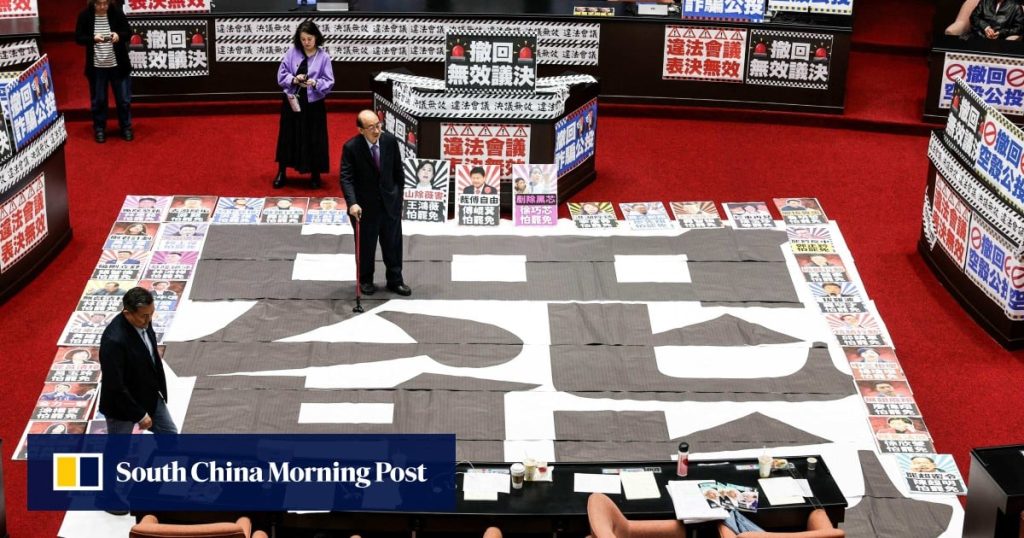The campaign – pushing for a recall petition where voters could remove the officials before their terms end – has energised pro-DPP civic groups and mobilised supporters island-wide. But analysts say it risks deepening partisan divisions and political instability at a time when the self-ruled island is facing intensified pressure from Beijing and economic uncertainty.
The DPP’s frustration with a legislature dominated by the opposition alliance is at the heart of the stand-off. The main opposition Kuomintang (KMT), which has warmer ties with Beijing, holds 52 of the 113 legislative seats. Together with the smaller Taiwan People’s Party (TPP), which has eight seats, and two independents, the opposition has formed a fragile but effective majority. The DPP – which held a commanding legislative majority from 2016 to 2024 – now holds 51 seats.
Of the opposition’s 62 lawmakers, 13 KMT members and all eight TPP lawmakers are at-large representatives, meaning they are not subject to recall votes under Taiwan’s electoral law. To reclaim a working majority, the DPP would need to successfully unseat and replace at least six district-based KMT legislators.
According to data from Taiwan’s Central Election Commission and civic groups leading the charge, 35 KMT lawmakers are currently facing potential recall. The campaign has gained steam after months of legislative gridlock, with the DPP accusing the opposition of paralysing the constitutional court, altering budgets, freezing government spending – including defence – and pushing through bills that allegedly threaten the island’s security.



